Tips for writing for better results
I know it can be overwhelming to improve your image generation skills with all the information available online. So, I’m going to introduce a simple technique to help youMidjourneycreation--4W1H TechnologyIt's perfect for beginners and will help you improve your midjourney art over time.
Midjourney
MidJourney is an AI image generator that creates high-quality visuals from simple text descriptions. It uses a powerful algorithm to generate imaginative and accurate images based on the user's prompts. MidJourney enhances visual content, making it a valuable tool for marketers and creatives looking to improve their online presence.
If you're a beginner, I know it can be challenging to craft the perfect cue. So, here's an ultimate guide to help you get started:
4W1H Technology
By breaking down the elements of your artwork into the What, Who, When, Where, and How, you'll help Midjourney gain a deeper understanding of your creative ideas.
Let’s explore how to use this technique to bring your artistic vision to life!
Part 1: 4W1H decomposition
4W1H means:
•WhatType/artistic style/category of image
•Who——Main Themes
•Where——Scene/Setting
•When——Time/Light
•How——Style and rendering and details
Here is a breakdown of the 4W1H technique:
What- Image Type Start by specifying the overall type of image to ensure consistency in style. This can include providing a specific aesthetic or art direction, such as:
• Artistic styles: Baroque, Impressionism, Renaissance, Abstraction, Surrealism
• Art media: charcoal, pencil, pastel, watercolor, oil, etc.
•Material texture: metal, fabric, wood, marble, glass, etc.
•Photography type: candid, black and white, landscape, portrait, full body, wide angle, etc.
It can also be a category, such as:
• Categories: Photographic images, UI design, interior design, logo design, etc.
WhoThe main subject is the focus of the image. It can be a person, animal, character, object, etc. You can also add secondary subjects. For example:
• Main – a beautiful girl
• Minor – has brown hair, wears Christmas clothes, fancy clothes
The subject can also be a landscape, an object, etc.
WhereScene/Setting describes the setting or background. If you can't decide, a generic term like "epic setting" can also be used. A setting can also be indoors, outdoors, an ocean landscape, outer space, New York, etc.
When--Time/Light specifies the time of day, season, year, historical period, etc.
• Time: 1980s, Jurassic period, spring, Christmas, etc.
• Lighting: blue hour, morning, golden hour, sunset, night, natural light, studio light, etc.
HowStyle/Rendering/Extra Details This covers the stylistic characteristics of the image. Key elements include:
• Artistic style: Artist, studio, art movement, etc.
• 3D style: 3D, visual effects, game engines, etc.
• Color: vivid, soft, bright, monochrome, colorful, black and white, pastel, etc.
• Lighting: soft, ambient, cloudy, cinematic, studio lighting, etc.
•Emotions: happy, calm, energetic, etc.
• Rendering styles: ray tracing, ambient occlusion, etc.
Focus on the terms that are most relevant to your image type. For beginners, keep it simple at first and don’t use too many advanced terms.
Part 2: Putting it together
Now, let’s apply the 4W1H framework and explore how to leverage it in prompt writing.
Example 1: Portrait
Hint: A beautiful lady with long brown hair, wearing a white dress, standing by the sea, blue hour, soft color breakdown:
•What – Portrait
•Who – A beautiful lady with long brown hair and a white dress
•Where——Standing on the beach
•When – Blue Hour
•How – Soft colors
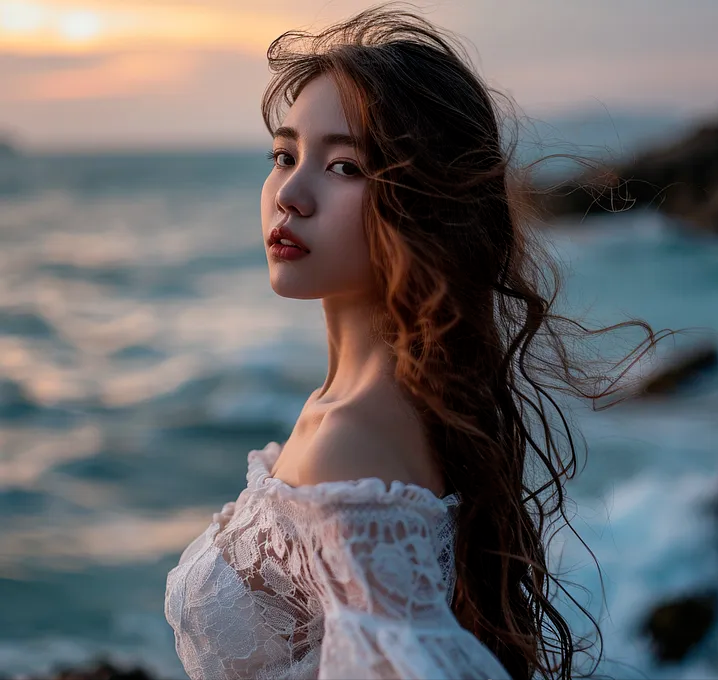
Example 2: Wildlife Photography
Tip: Wildlife photography, a cute fluffy rabbit in the winter woods, sunset, cinematic style lighting breakdown:
•What – Wildlife Photography
•Who——A cute furry rabbit
•Where—In the winter woods
•When – Sunset
•How – Film-style lighting
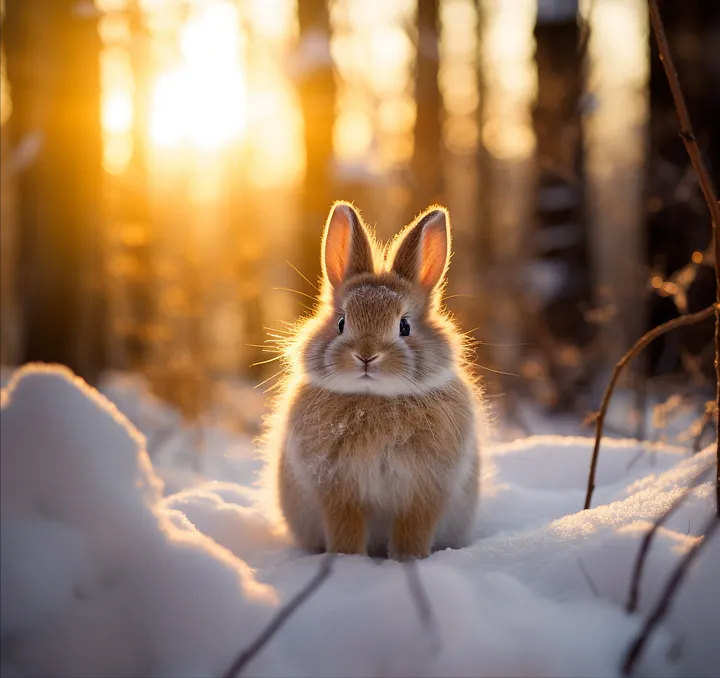
2W1H- Painting
It is not necessary to use every "W". You can also omit the "when" and "where" like in the example below. Tip: Romantic art style painting, birds and flowers, pastel breakup:
•What – Paintings in the Romantic Art Style
•Who——Birds and Flowers
•How – Pastel
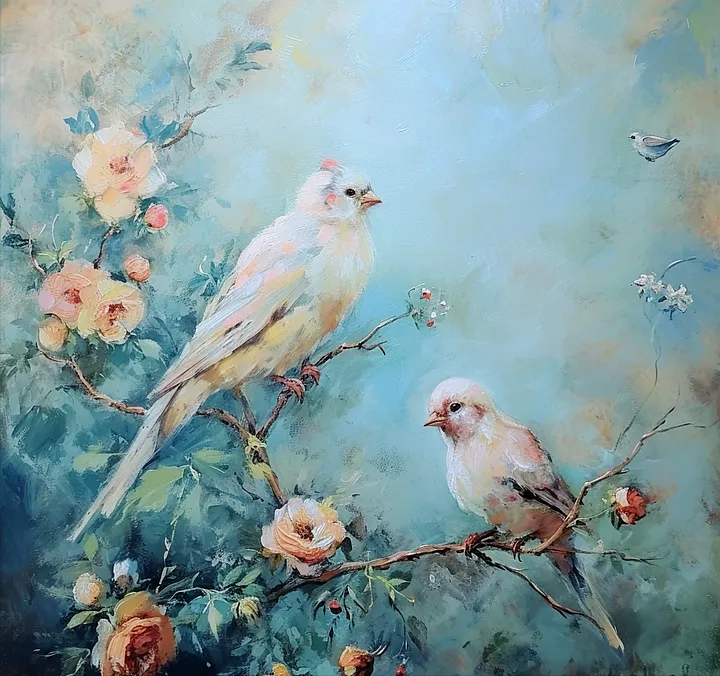
Section 3: Commercial Use - Category
Let’s see how to use the 4W1H technique for business purposes.
UI Design
Tip: UI design for a plant store, login page, minimalistic, classic, beige and navy green – ar 4:3
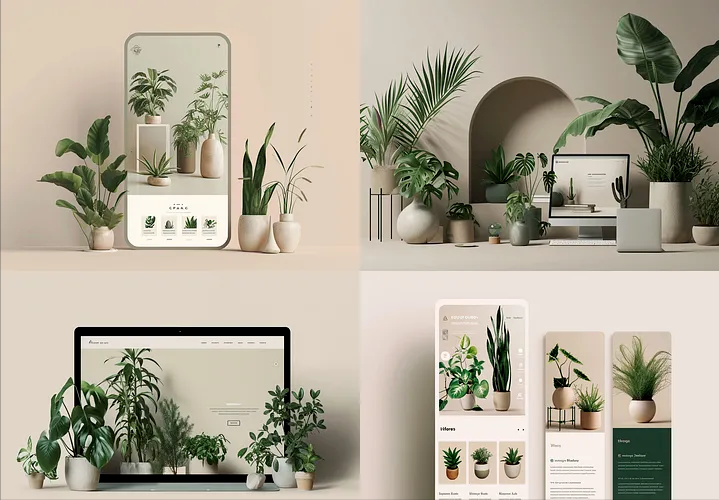
Packaging Design
Tip: Plant shop packaging design, simple, classic, beige and navy green - ar 4:3
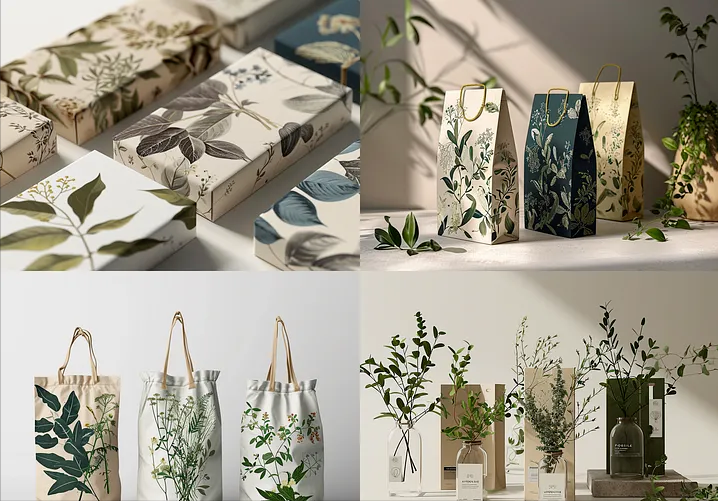
Logo Design
Tip: Logo design for a plant store, simple, classic, beige and navy green - ar 4:3
break down:
•What——UI design/Packaging design/Logo design
•Who – Plant Shop
•How – simple, classic, beige and navy green
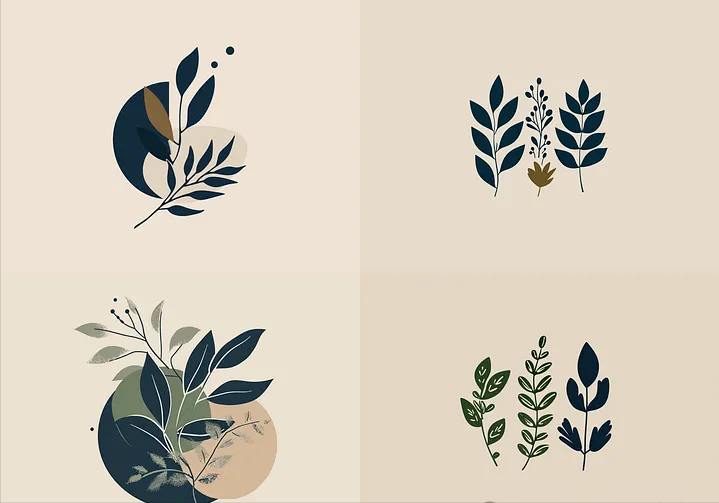
As you can see, basically you just need to replace the first word in each prompt with the category.
Interior Design
Tip: Coffee shop interior design, simple, soft peach color - ar 4:3
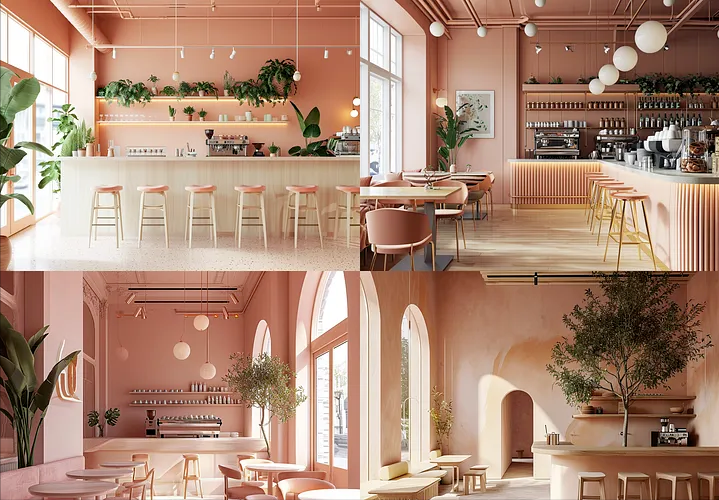
Final Thoughts
The 4W1H technique is a method developed specifically for Midjourney V6. It is suitable for beginners to get started, and can help you master Midjourney over time.
By mastering this technique, you can easily adjust the components of your cue. Once you understand the framework, changing the main subject, material, style, or era is simple.
The key is to start simple and gain experience through practice. As you create more images, your prompt writing skills will gradually improve until you develop your own intuitive style.